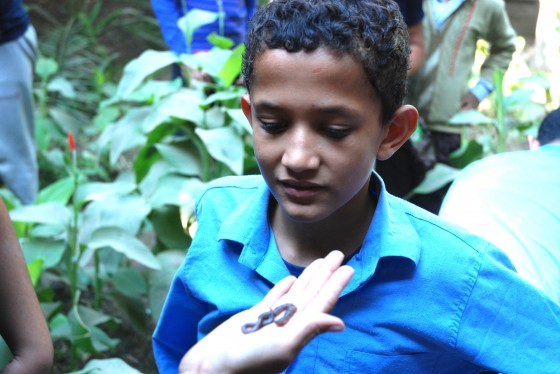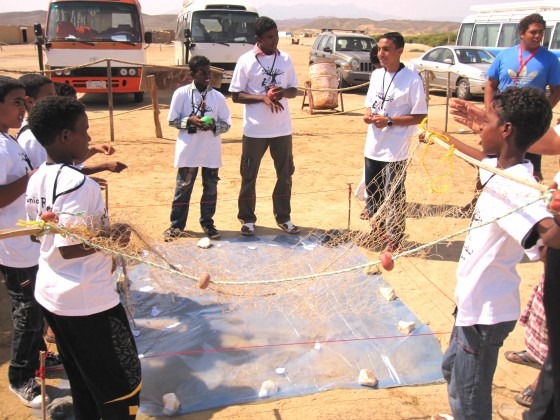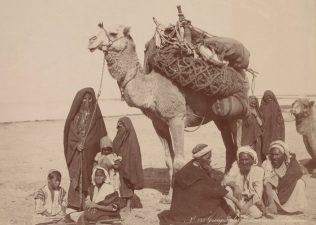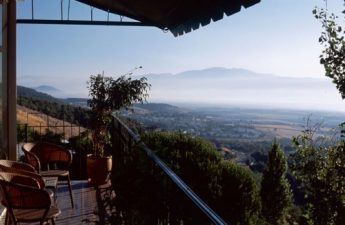 A host of eco-tourism initiatives in Egypt are moving away from the packaged tour to nature-based experiences
A host of eco-tourism initiatives in Egypt are moving away from the packaged tour to nature-based experiences
Nature has been developing solutions to its own challenges for the last 3.8 billion years, so two women in Egypt have set up an eco-tourism venture that tunes into that infinite wisdom. Biologists Sara el-Sayed and Betty Khoury decided to start their own business after last year’s revolution made their previous jobs obsolete.
Dayma offers guided journeys to many of Egypt’s less-explored locations and last up to 10 days. But here’s the most interesting aspect of their “everlasting, enduring, or sustainable” tours: instead of trooping with the throng to the same old historical destinations, Dayma focuses on biomimicry – “an alternative manner of development that harmonizes with natural processes.”
The Camel
Tourists who walk on sand dunes sink in the sand, hobbling along as though their legs are two different lengths. Yet camels cruise along without skipping a beat. How is this possible? What do camels have that we don’t and what can we learn from their special adaptations?
“The camel could teach us how to walk on soft sandy surfaces,” Sara el-Sayed told Green Prophet, adding that we could “maybe look at its three eyelids that create a super barrier to deal with sand storms, as well as the nostrils that seal off completely.”
We could “even learn from them based on the plants they eat to heal themselves,” el-Sayed said, adding that this “is actually already done by local Bedouins.”
Youth who have been on a Dayma tour have come up with their own creative solutions to problems based on what they have observed in nature.
Sara explained that after observing a horned viper whose jaw actually separates when eating its prey, the elastic skin stretching to accommodate the jaw’s expansion, one student proposed to develop a fabric that has a similar capability. That way, according to the student, clothing manufacturers would be able to make all outfits one size.
The Scorpion
Although a “one-size-fits-all” stretchy fabrics may be a bit far-fetched, more realistic ideas have also come from Dayma tours, which support local communities as far as possible. If el-Sayed and Khoury are unable to find eco-lodges for their guests, they will source the next best option to ensure that their presence is genuinely advantageous.
“Due to its skin having a certain texture that allows it to withstand sandstorms and abrasiveness, the scorpion could teach us to create materials that could be placed on photovoltaic panels so they aren’t ruined with time, or even on a simpler scale non-scratch glass that could withstand a sandstorm,” el-Sayed explains.
And this is just the tip of the iceberg. Although the desert looks like a vast, unforgivable place sans life, there are all kinds of fauna and flora and humans that survive their using innovative tricks.
Many Egyptians who live in urban areas lead a sedentary life that keeps them alienated from natural processes, but a steady increase of eco-tours, sustainably built lodges, and even creative urban farming initiatives are slowly bringing the green back into their lives. As for tourists, it’s high time they demand more than the tired and overrun packaged tours of old.
More on Eco-Tourism in Egypt:
Is Troubled Egypt Ready for Eco-Tourism?
New El Mandara Eco-Haven Pops up in Fayoum, Egypt
Tourists Bust Egyptian Tourism Operators Serving Endangered Species






Thank you Tafline for a beautifully written article.
C’est super .bravo et bonne courage .